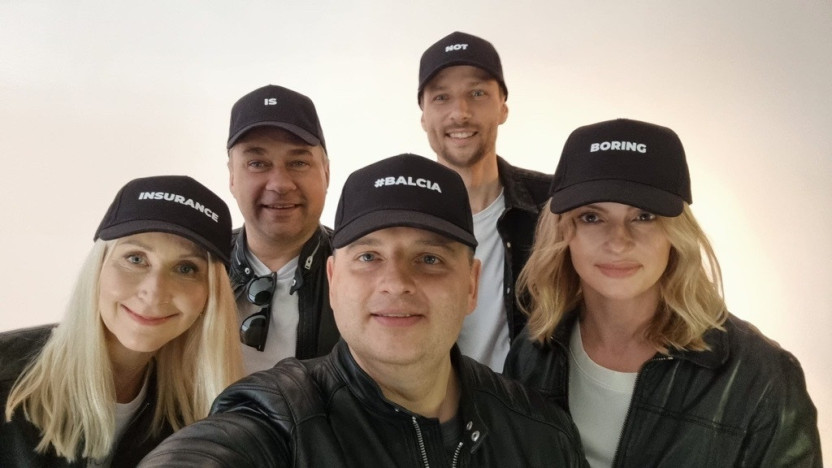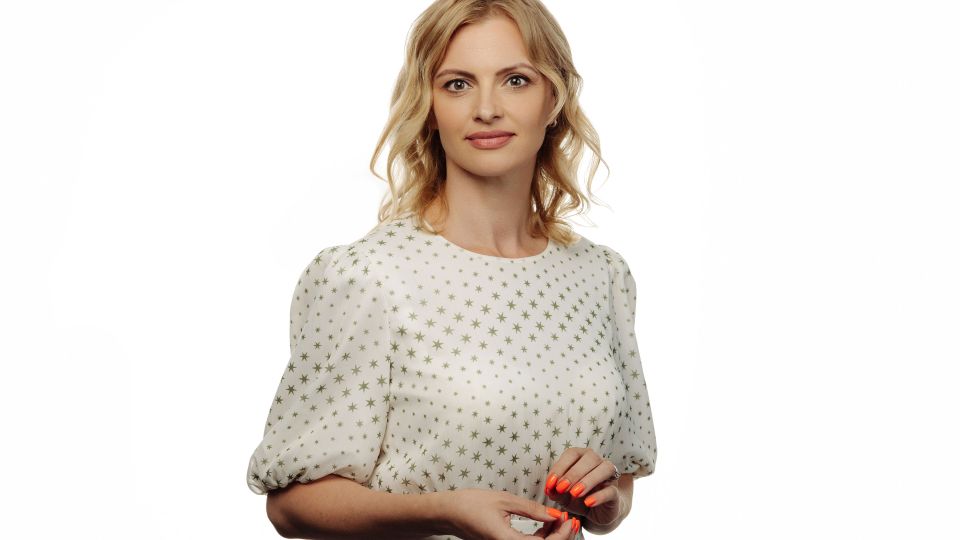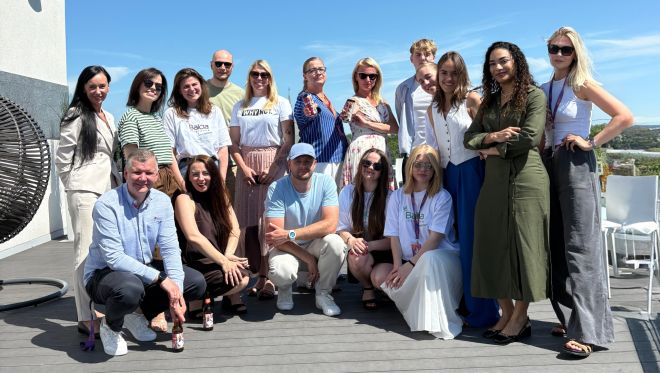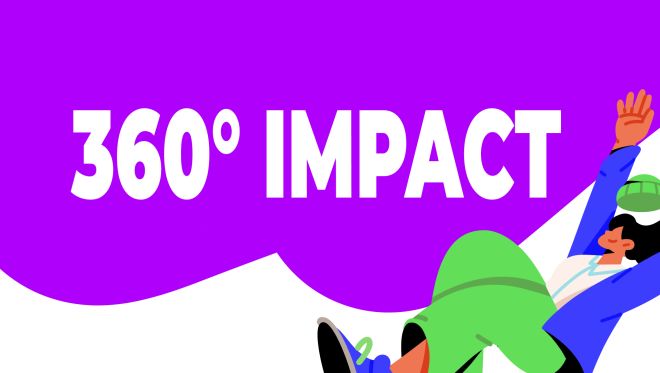Laura Krastiņa, a board member at Balcia, oversees the company’s marketing, personnel management, and administrative matters. She enjoys taking on new challenges and believes life becomes dull without them. At work, Laura trusts her colleagues and firmly believes that the opportunity to make mistakes can help both people and the business grow. Read more in the conversation with Laura!
How did you get to Balcia, and what do you do here?
I had collaborated with the head of Balcia on a project created by my previous workplace. After some time, he invited me to join the Balcia team, promising that the work there would be exciting and dynamic. I remember thinking then: “I get the dynamics – I work in fintech with start-ups!”. However, I must admit that the pace of work at Balcia tends to be even faster than in a start-up environment. The promise has been fulfilled. I’ve been in Balcia for over a year, but it feels much longer. My responsibilities include marketing, personnel, administrative management, and collaborating with other functions to oversee our e-commerce channel. I am also a member of the company’s board.
What do you think creates this dynamic?
Balcia has brought together people with ambitions to change and question the world. We are positioning ourselves as industry challengers, striving to revolutionize the traditional insurance environment and alter the mindset of our customers and competitors. To achieve this, we cannot afford to be passive or slow-moving. We constantly stay informed about what’s happening worldwide and in other industries, learn from others, and develop innovative solutions. We need to respond rapidly to remain competitive.
How do you shake up the industry?
We can draw parallels with the fintech industry. In the past, banks used to make fun of these new technology-driven companies, but now, they have taken over the world and forced banks to adapt and change their ways. This has created a win-win situation for everyone involved. Similarly, in the insurance industry, by calling ourselves an insurance technology company, we can offer the user a completely different experience through the prism of technology.
Our primary audience is Generation Z, with Millennials being our secondary audience. As we target young people, our communication style is youthful. Our visual language is significantly different from what you are used to seeing in the insurance industry, as we prefer bright and noticeable designs over traditionally reserved ones. When choosing channels, we put our faith in the digital environment. Last year, we created and launched the mobile app in Latvia, Estonia, and Lithuania in just six months. We plan to launch in Poland this year. This app aims to showcase an insurance product from a lifestyle perspective. Our top priority is to engage and educate the audience, with sales following only after that. Much emphasis is placed on the rewards section, which is fast and easy to use.
Our efforts have been noticed and appreciated. This year, we were recognized as the bravest brand in Latvia’s insurance sector and the second bravest brand in the financial industry, with Revolut coming in first.
Is your previous work experience in fintech beneficial for work in Balcia?
I hope it is! What definitely comes in handy are the contacts you make. For example, when working on the Balcia mobile app, we collaborated with a company I had previously worked with during my fintech days. We’ve also brought a fresh perspective to our company’s work environment. We hire professionals from the insurance industry with strong knowledge of the field and individuals from the fintech and start-up worlds who bring an outsider’s view. These hires are accustomed to working in a dynamic work environment without the restraints of bureaucracy and have previously encountered innovative methods in areas like project management and planning. Combining these experiences results in a powerful team.
Why do people leave the exciting start-up environment?
Everyone has their reasons for sure. I enjoyed working in such an environment. Still, one has to consider that the achievements quickly alternate with losses, which can feel like riding a roller coaster. After eight years on a roller coaster, it was time for a change. On the other hand, Balcia offers a combination of stability and start-up vibes, which I find very interesting and appropriate. I still get to do challenging things but without the added frustration. Here, there is trust, the opportunity to do new things, and grow professionally, which provides a sense of security. This is a great time to work at Balcia, and it offers a professionally exciting experience.
Please tell us about your first work experience!
Yes, but before that, I’d like to take a step back. I studied at the 1st Riga State Gymnasium, which focused on exact sciences, and at the time, it seemed that this was also my strong point. I believed that the Latvian language, literature, and writing compositions were certainly not for me. I can’t write! During high school, my grandmother helped me with my essays, and thanks to her excellent writing skills, I got good grades.
After high school, I enrolled in the Faculty of Economics and Management of the University of Latvia. I searched for ways to earn some money. Ironically, I landed a job at the BNS news agency. When I went to the job interview, I didn’t even really know what BNS was and what I would have to do there. It turned out that I had to write! That’s how I ended up in journalism and began writing economic news. After that, I started working as the chief editor of the weekly magazine “Republika”, where I was part of a strong team that included poet Jānis Peters and journalists Gundega Roze and Aivars Pastalnieks. Unfortunately, the magazine faced financial challenges and was discontinued. I tend to wonder if the magazine could have been saved with the economic and financial knowledge. I don’t know, and I never will, but it was a valuable experience.
Did you pursue a career in journalism after that?
No, after that, I started working at the Latvian Food Enterprises Federation (LPEF), a non-governmental organization that lobbies for the interests of food producers. Soon, I was noticed by one of the companies on the board of the federation, AS Aldaris, and began working for them. It was a great experience, and I experienced a lot of trust from the employer. Although I didn’t have all the required knowledge for the position of corporate relations manager, they allowed me to learn and acquire the necessary skills. After a year, I became the director of communication in Latvia, and later on, I was also in charge of the Estonian market.
After a while, I faced a new challenge when the shareholders decided to change their business strategy and stop mass production in Latvia. As a management team, we came up with a good vision for the future, which included developing the craft beer segment, creating the Beer Museum, and making other changes. This led me to step out of my role as the communications director and join the change management team. I was responsible for planning the termination of the existing work process, implementing the new development project, and identifying the stakeholders and their reactions. I had the opportunity to create the Beer Museum from scratch. This involved everything from developing the concept and researching historical materials to choosing architectural solutions, addressing museum design issues, cooperating with the builders, and organizing the opening event. It was the project of a lifetime! This experience allowed me to see the work not only from the communication perspective but also from a strategic business standpoint. There were huge development plans for the historical territory of Aldaris, and negotiations had been started with the Riga City Council about opening the historic site to the public. Then, I moved on to work for a financial technology company called TWINO.
How did you get there?
I just found myself there. In general, in every job I’ve had, the work has always found me rather than the other way around. And it has always been fascinating! Of course, each job has unique dynamics and ups and downs, but I’ve always been passionate about all my roles. I joined TWINO at an exciting time when the financial technology sector was still taking shape. I had to assert our presence boldly, saying: “Hey, we’re here to stay!”. At TWINO, I worked in communications at an international level, which required me to familiarize myself with the media environment in countries like Great Britain and Germany. I also took on personnel management responsibilities during my time at the company.
How did it happen?
I became interested in personnel management during my time at Aldaris, where there was a strong emphasis on internal communication. We worked closely together with personnel management colleagues daily. HR manager Pārsla Baško and I shared an office, and we inspired and supplemented each other every day. I've learned a lot from her as a colleague, and we still communicate and discuss professional topics today. At TWINO, the communication and personnel management areas were also very closely related. During this time, the employer's brand image became relevant. And then, when the existing head of personnel accepted other challenges, we decided to combine the management of these areas since they are close to each other. Taking on this new challenge and officially proving myself in personnel management was a great honor! I'm the kind of person who loves a good challenge – when everything is organized and going as planned, it can get boring.
So, is it not boring in Balcia?
Not at all! When I first joined, I had to pass a big test as it's not typical in the insurance industry for someone with no experience to start working on the board. The Financial and Capital Market Commission (FCMC) (now the Bank of Latvia) had to approve my position. I prepared thoroughly for the selection interview and was ultimately accepted. And I'm still here today!
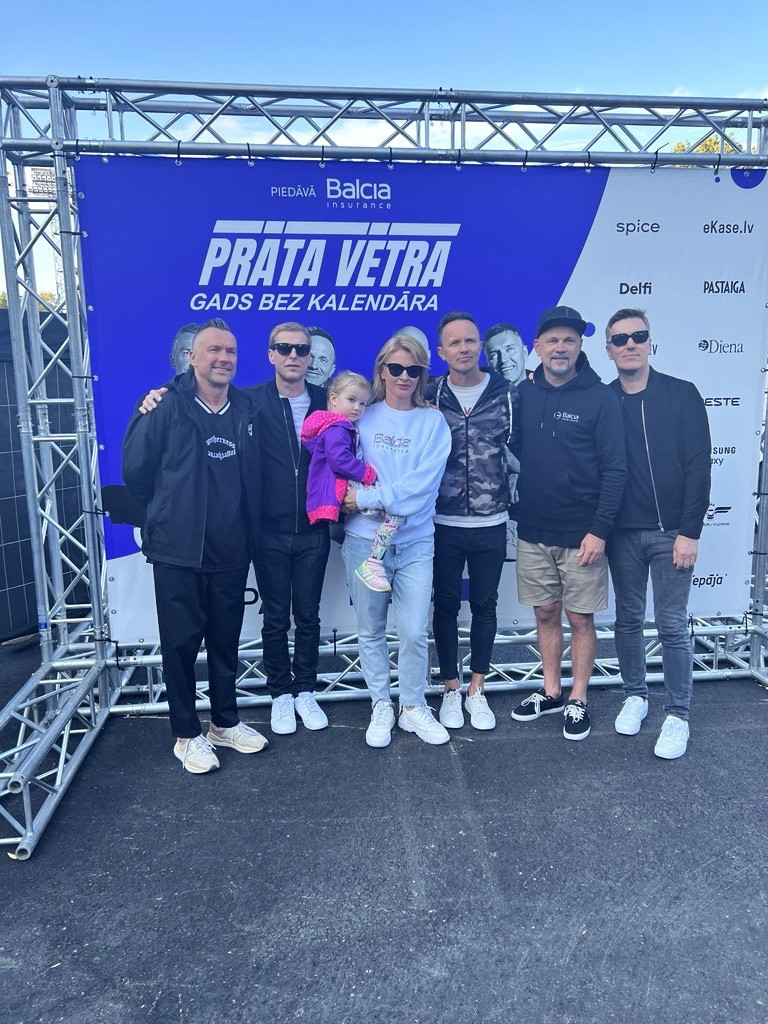
How did your opinion about the insurance field change when you started working there?
Before entering the industry, as a private individual, I only chose to buy mandatory insurance products such as OCTA. While I also had experience with KASKO and health insurance, I didn’t take insurance for granted. Since working in the industry, I have seen the potential risks more clearly and now value the safety net that insurance provides. This is a key aspect for insurers – effectively communicating why insurance is necessary.
Also, insurance seemed to be a dull affair that involved going through thick bundles of paper filled with small print when signing the contract. However, at Balcia, we follow the principle that the insurance conditions should be clear and well-structured, with a maximum of 10 pages and no small print. Our policies should contain information anyone can understand without falling asleep while reading. This is also one of the ways we challenge the industry by creating a new standard. Our desire to change processes for the benefit of our customers is encoded in our DNA, and the main strategic goal is to save time, which is our most valuable asset. For example, the Balcia mobile app is currently the most convenient and fastest way to submit a claim.
What are the other ways in which time is saved at Balcia?
The second example is our career page. In addition to listing vacancies for our insurance jobs, it also includes a personality test that potential employees can take to determine whether their personality is a good fit for our company. The candidate also has the opportunity to book a 15-minute conversation with our personnel management specialists to understand whether we are a good match before starting the selection process.
What insurance products do you currently use?
I've insurance policies for my home, health, and car (OCTA, KASKO). When my family and I go on a trip, we use the Balcia app to take out travel insurance. I also use our "Junior" product, which provides children's accident insurance. My son Lukass used it once when he broke his finger while playing sports.
Are people today more responsible and more likely to use insurance than they used to be?
Of course, people today have become more aware of insurance options, but they still need to make full use of them. One of the reasons for this is the need for more clarity about what is actually covered by insurance policies. Many people don't know that home insurance, for example, covers even absolutely casual situations. For example, if you drop your phone and the screen breaks, this risk is insured for a certain period after purchase. Similarly, if your child scratches the TV screen, it's also covered under your home insurance.
Has the interest in insurance increased after the storms that occurred this year?
Last year was quite unusual, with floods in the Daugava and two intense storms that came with large hail. The first storm was scary; I remember asking our colleagues to go home early for their safety. After the storm, we surveyed to find out if such a natural disaster had made people think more about home insurance. The responses revealed that only a few people planned to insure their homes after these events. However, those who were insured were very happy with their decision. We’ve paid out one million in damages caused by the storm.
When do people begin to seriously consider the importance of having insurance?
Unfortunately, many people only consider buying insurance when they or someone they know has had an accident. Of course, also in those situations where a mortgage loan is taken because insurance is mandatory.
How has the business environment changed in the last 20 years?
Looking at this question from my experience, 20 years ago, there was a significant gap between international companies that entered Latvia with a lot of business management experience and Latvian companies that still had much to learn. For example, I still use the approaches I learned in HR management from Aldaris’ Scandinavian investors. I remember how we used to drive to company branches at 5:30 in the morning with the truck drivers to witness the daily process and see how our decisions played out in real life. Understanding how day-to-day issues in the company look from an employee’s perspective is still very relevant today. In general, the world and business are now more dynamic. Of course, the impact of technology is very significant.
Is the insurance industry likely to incorporate artificial intelligence?
Definitely! We always look for the latest tools and evaluate their potential applications because innovation is one of our company’s top priorities. To help us determine which new innovations suit us, we work with an intermediary who knows the start-up environment inside out. This intermediary understands precisely what experienced business enterprises like us need, making connecting with other businesses quick and smooth. Right now, we’re working on automating the CASCO claim application process.
How do you think the relationship between employers and employees has changed over time?
It changes depending on various external factors such as the economic and geopolitical situation. In terms of internal factors, companies used to focus primarily on professional knowledge; however, nowadays, the values matter more, whether they align with the company’s culture. In other words, the employee should have a good “chemistry” with the company. Of course, mistakes can happen, but my growing conviction is that knowledge can be taught over time with patience, while attitude and compatibility with the company’s values cannot.
Is it easy to find a good employee?
Not at all. Our medium-term goal is to create an environment where people would want to work in insurance and fill our vacancies themselves without us having to actively search for them. To achieve this, our team is working hard to improve the internal environment and make us stand out.
What are the people like at Balcia?
A little crazy! We like to work, but we also like to celebrate our successes. We challenge each other to take risks and make mistakes, and we’re always willing to learn from those mistakes. Those afraid to make mistakes often struggle to develop new ideas and take initiative, so it’s crucial to create an environment where people are allowed to make mistakes. I have a lot of trust in my team and give them a lot of freedom, but I also expect them to be responsible and take ownership of their actions. I expect that employees come to their manager not only with a problem but also with their own ideas for a solution. Balcia generally has a relatively horizontal organizational structure; the employees are experts in their respective fields. They are knowledgeable about their areas of activity and can justify decisions and defend their interests regarding budget matters. This is how we build an internal work culture.
What are the most challenging and easiest aspects of your job?
I find it easy to take on new challenges and dive into a new project, but the most difficult part is to say “no” and stick to my decision. This often negatively affects my private life, causing my work-life balance to suffer. I must admit that my family is already used to it and knows how much I tend to immerse myself in work. I joke that sometimes I forget to pick up my children from school or kindergarten, but instead, they come to me to remind me to take a break from work.
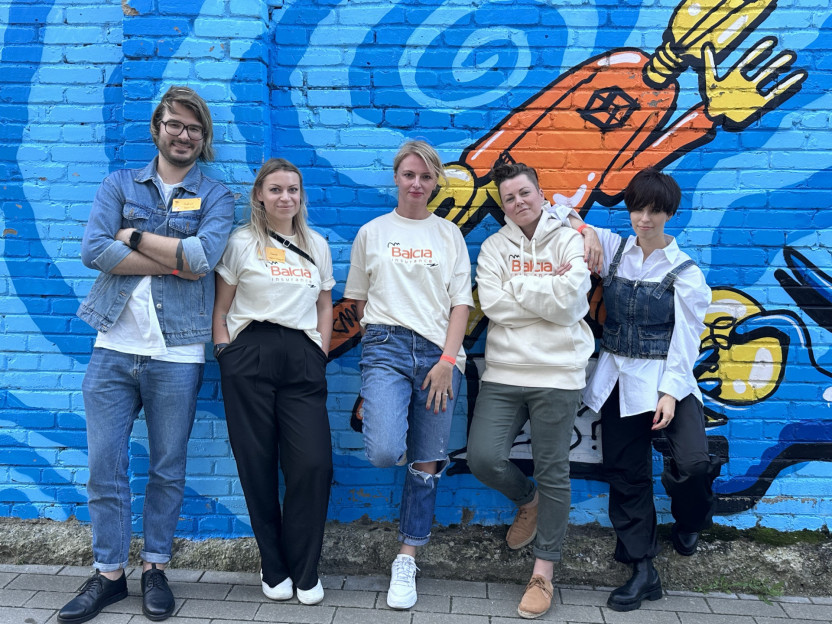
How do you deal with 24/7 communication in the company? Are there any rules?
No, there are no special rules. I try not to disturb my team or text them after working hours, but if there are urgent situations, we communicate. However, when it comes to communicating with colleagues on the board, we also tend to communicate outside of working hours. This is a common practice for us, as we’re all caught up in a whirlwind.
How do you manage to take your mind off work?
I’ve my children and their hobbies, which take up all my free time. My daughter, Amanda, is 4 years old, and my son, Lukass, is 12. Lukass loves football, and thanks to him, we quite often get to visit football tournaments, including international ones, as a family. Twice a week, I go to the gym to take some time, which helps me stay calm. During winter, I enjoy snowboarding, and I’m happy when I get the chance to go to the mountains outside of Latvia.
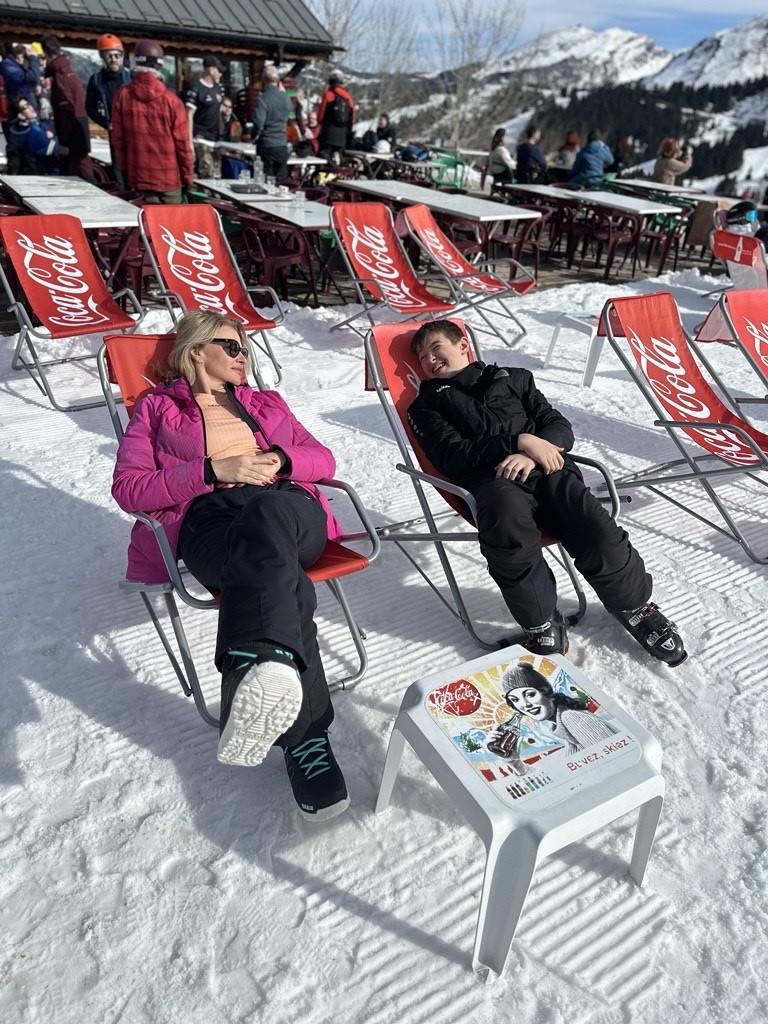
As a company, you also support people who lead an active lifestyle and promote sports!
Yes, it aligns with our brand values. For example, we support the Latvian bobsleigh and skeleton federation, which needed help to attract funding. Bobsleigh is a source of pride for Latvia and has brought many medals to our country. We also support music and alternative sports, such as BMX athletes and skateboarders. In Lithuania, we support a Dakar rally driver. In Estonia, we support a mountain climber who plans to conquer the mountains of Antarctica. We support people who, like our brand, are unafraid of taking on challenges and surprising the world!
If you could choose any superpower, what would it be?
I would like to be in several places at once! There is so much to do at work; my family has their own needs, and many exciting developments and events are happening constantly. I want to be more involved in these processes so that I can be there for everything and everyone!
What do you value the most in people?
I highly value mutual respect, honesty, and the ability to admit one’s mistakes. These qualities are important to me at work and in my private life. I also try to admit my mistakes because it helps me learn from them. One thing that I do not like is when someone takes credit for other people’s hard work. In case of a good achievement, it’s essential to recognize the whole team, every colleague, and cooperation partner who participated in the work.
What are you afraid of?
Death. I’m not afraid to die, but I really want to see my children grow up and take care of them for as long as possible. It’s important to me that my family is safe and that everyone is alive and well. Although my children are past the risky baby age, I still tend to wake up at night and check up on them. I make sure that the little ones are breathing and sleeping soundly before I can fall back asleep.
What would you do if you had a million?
I would feel more at ease and have financial security in my old age –I would travel and enjoy life without worrying about the Latvian pension system or the material aspects of life. But as for right now, I’m happy with my life and would like to continue doing what I’m doing.
If you could change something about your past, would you do it?
Of course, there are events in the past that could have been changed or could have gone differently with the knowledge and experience I’ve now. At the same time, I understand that different actions in the past would have created a different reality today. I’m happy with where I am now, so I wouldn’t change anything.
What are you looking forward to in this year?
My colleagues and I were recently discussing how to insure the new year. The past years have been challenging with the pandemic, the war in Ukraine, and natural disasters. However, it can always be worse. Therefore, I would like this year to be peaceful, without geopolitical conflicts and natural disasters, so that we can enjoy our daily routines without worrying about any of these things.
What do you wish for your colleagues?
I wish the same for my colleagues as I do for myself – inner and outer peace. And to take a moment to stop, think about future plans, and reflect on their accomplishments. A lot has been achieved, and it should be celebrated! This year, I hope everyone acknowledges their efforts and feels proud of what they have done!
